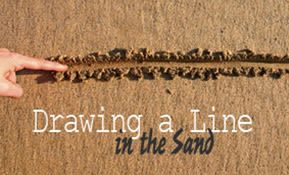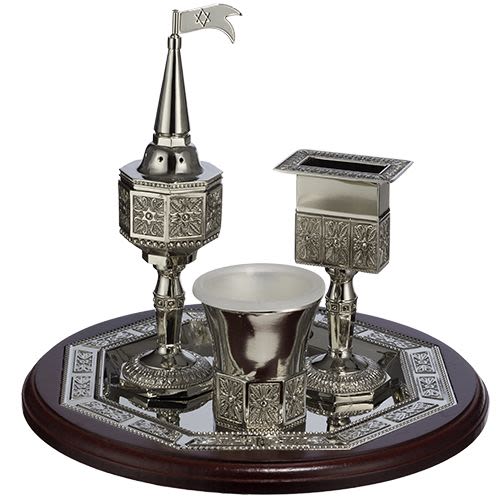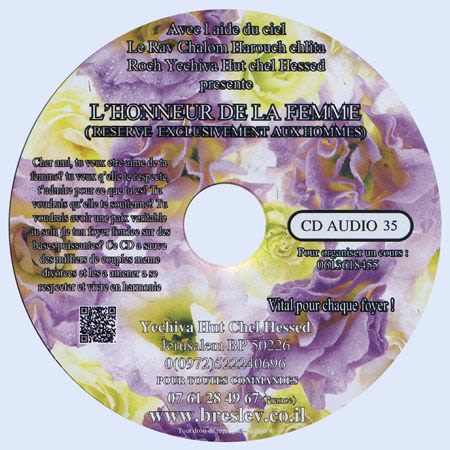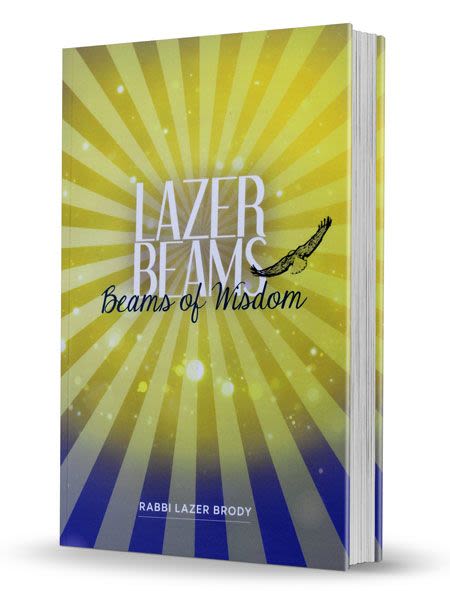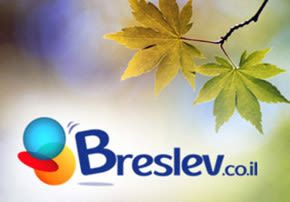
Toldot: An Open Letter to Parents
Many people understand that God's Oneness is obvious and logical, yet would rather bury their head in the comfortable sand of familiarity...

“Did your daughter join a cult? Is your son off the deep end? What happened to my child?"
Many American parents witness their children going through weird stages. Lately, parents are finding their children becoming part of something even stranger than punk rock. In fact, many kids are becoming involved in something that seems far more threatening; a lifestyle that embraces modesty, piety, learning, and fixed values that date back 3,000 years. In the, “free to be you and me” world of 2006, that is crazy!
After a century of redefining, reforming, and reconstructing traditional Judaism, people are starting to come back. Across the world, thousands of people are returning to Orthodox Judaism. For the generations of Jews who grew up in an assimilated world, this change is daunting. Despite parental efforts to help them succeed in American society, many young people today are postponing college, medical school, law school, and lucrative careers to embrace a “new” way of traditional Jewish life. This life path oftentimes poses a formidable challenge to the parent/child relationship.
Embracing a New Life
Parshat Toldot addresses this fundamental relationship, and how parents deal with children who chose the “path less traveled.” This week’s parsha includes the famous, yet cryptic, episode in which Yaakov (Jacob) “deceived” his father and got the blessing that was meant for his twin brother, Esav (Esau).
Opposites
Yaakov and Esav were opposites. Esav, the older twin, was a man of the field. He excelled in hunting, physical labor, and enjoyed violent and immoral pursuits. Yaakov, however, was a Torah scholar, spending his days inside, pouring over the holy texts.
It was common in those days for the eldest son to receive a blessing from his father. Yitzchak's (Isaac's) blessing had tremendous power. As the spiritual stronghold, Yaakov had be the recipient of this blessing to reach his potential. Why then, did the saintly Yitzchak wish to bless the wicked Esav? Wasn’t it obvious that Esav wasn’t worthy?
Blind to the Truth
Before Yitzchak blessed his children in his old age, the Torah informs us, “his eyes dimmed from seeing" (Bereishit 27:1). This blindness was no ordinary malady of the eyes! Rashi explains that Esav’s wives were idol worshippers. These women would light incense offerings to idols that they kept in Yitzchak's house. The smoke from the idol worship clouded Yitzchak's eyes and blinded him. Thus Rashi tells us that, “The greater a person is, the more sensitive they are to sin.” Yitzchak became blind to spare him the pain of witnessing the evil that was taking place in his own house.
We can see that Yitzchak was “blind” to the true evil nature of Esav and loved him. Rabbi Dessler explains that Yitzchak wanted to bless his eldest son because he identified with him. To become a sacrifice to God, Yitzchak totally suppressed his bodily desires. Yitzchak sensed that Esav had powerful physical desires and reasoned that Esav was struggling to subdue them. Yitzchak assumed that the blessing would help his son succeed in his struggle against physicality.
Yitzchak understood that both Esav and Yaakov could have a share in bringing the world to completion. Esav, being the more physical of the two, could perfect the physical world. Yaakov, who was totally connected to spirituality, could channel holiness into the world that Esav had perfected.
More than anything, Yitzchak wanted to see his eldest son succeed in subjugating his potent physical drives. Yet, unbeknownst to him, Esav had stopped trying to overcome them. In fact, he had become completely enveloped by his physicality. Yitzchak was unable to accept this.
Deep down, Yitzchak realized that Esav was unworthy. Prior to giving him the blessing, Yitzchak asked Esav to first hunt for his favorite meat and prepare a large feast. Honoring one’s father and mother is a very important mitzvah. Yitzchak recognized that Esav did not have the merit to receive a blessing, so he wanted him to perform an extra mitzvah.
Yitzchak's wife, Rivka (Rebecca), was not fooled by Esav. She was keenly aware of who he was and she recognized his evil ways. Therefore, when Esav left to hunt for food for his father, Rivka told Yaakov to put on his brother’s clothes, bring his father food, and receive the blessing meant for Esav. Yaakov did as he was told.
The Blessing
The blessing Yaakov received was as follows: “And may God give you of the dew of the Heavens and of the fatness of the earth, and abundant grain and wine. Peoples will serve you, and regimes will prostrate themselves to you, you will be a lord to your kinsmen, and your mother’s sons will prostrate themselves to you; cursed be they who curse you, and blessed be they who bless you" (Bereishit 27:28).
The Seforno explains that although Yitzchak meant this blessing for Esav, it was ultimately for Yaakov's benefit. “Yitzchak did not want Yaakov to be encumbered by material responsibilities that would hinder his spiritual development, nor did he want him to have too much material wealth and power, less he become corrupted by it. Thus Yaakov would have inherited Eretz Yisrael and been free to serve God, while Esav would rule the land and provide for its inhabitants.”
Like all parents, Yitzchak wanted to see both of his children grow up to be productive members of society. He had dreams that his two sons would go into the “family business” of creating a more holy world. He was unwilling to come to grips that his children had chosen different paths.
Esav's True Nature
Eventually, Yitzchak was forced to see the true nature of his children. After Yaakov had been blessed, Esav returned to his father and demanded his blessing. “[Yitzchak asked,] 'Who are you?' And he said, 'I am your first born son, Esav.' Then Yitzchak trembled in very great perplexity and said, 'Who-Where-is the one who hunted game, brought it to me and I partook of it all when you had not yet come, and I blessed him? Indeed, he shall remain blessed!'" (Bereishit 27:32).
Rashi explains that Yitzchak trembled greatly because he had a vision of hell opening beneath Esav. For the first time in his life, Yitzchak fully understood the true nature of his son. Esav wasn’t, as his father had hoped, waging war against his yetzer hara. Esav was a man who had deviated from his father’s wishes, and turned to a life of darkness and physicality. This is why Yitzchak, upon realizing that he had given his blessing to Yaakov, the deserving son, declared, “He shall remain blessed!” Everything had fallen into place, and Yitzchak wholeheartedly accepted the reality of his situation.
Rebbe Nachman says, “The greatest barriers of all are those in the mind" (Likutey Etzot, p. 166). For Esav’s entire life, his father had invested his hopes and dreams into his oldest son. He hoped and prayed that Esav would rise to the challenge of accompanying his righteous brother Yaakov in their sacred mission. For this reason, he became blind to his son’s true character and actions.
From another perspective, we see that because Yitzchak was so invested in Esav, he downplayed the importance of Yaakov. Yaakov was to carry forth the holy mission of the Jewish people, and even though he showed great promise at a young age, Yaakov needed the strength of his father’s blessing to carry him forward. Thus, Rabbi Dessler says even the greatest tzaddik needs to be blessed continually, and that no one can go without such blessings (Strive for Truth!, p. 135).
Parents' Responsibility
To be a good parent it is important to be objective and recognize the unique essence of each child in his own individuality. Often, when children begin to embrace the traditions of their forefathers, less observant parents feel rejected. The saga of Yaakov and Esav proves that as children grow up and become responsible for their own lives, their true personalities shine through. If they choose the path of Torah, parents should realize the importance of their approval and support. Parents have the power to give their children an inner strength that will serve them for life. Even our holy patriarch Yaakov needed Yitzchak’s love and blessings to push him to perfection. It is up to us as parents to give that unconditional love and the blessings needed to help our children grow into who they were created to be.


